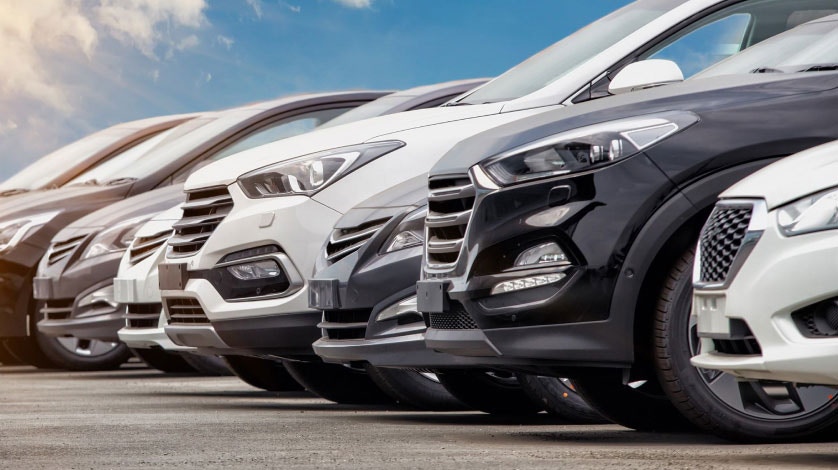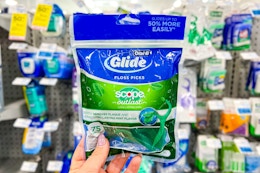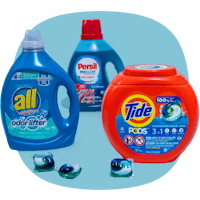Separately, cars and credit cards are each extremely useful in our day to day. Cars, obviously, are important for getting us where we need to go efficiently. While credit cards, when used responsibly, can help us build credit towards locking in better interest rates on mortgages and personal loans. However, when you pair the two and ask, “Can I buy a car with a credit card?,” well, each item loses some shine in its own way.
Whether you think your reasoning is good or bad, it’s almost always a terrible idea to buy a car on a credit card. Some dealerships will technically let you do it, but it’s an extremely expensive way to finance a vehicle. The extra fees you’ll incur almost always wipe out any potential ‘perks’ you might be earning through your credit card issuer.
Let’s look into why so many dealerships won’t accept credit cards when you buy a car, and why it’s probably a bad idea even if they offer to accept yours.
Download the KCL app for more smart money tips.
You can buy a car with a credit card, but not all dealers will allow it.

Technically, yes, you can buy a car with a credit card. But you’ll have to be shopping at just the right dealer. Even then, it almost always isn’t a good idea.
First, most dealerships don’t accept credit cards. While it would be nice to think this is for altruistic reasons, the reality is that each time a business processes a credit card, they have to pay a small fee.
But even small fees (we’re talking about ranges between 1% – 4% ish) can add up quickly when you’re talking about a large purchase. For example, 2% of a $25,000 purchase would be $500.
It’s not worth it to them, so most dealerships don’t accept them.
There are several reasons why buying a car with a credit card is a bad idea, like the fact that the interest rates are exorbitant.

Okay, so let’s say you find one of those rare dealerships that will let you buy a car with a credit card. You’ve got to consider if your motivations behind this decision are financially sound or not.
In almost all instances, it’s a bad idea to purchase a car with a credit card. But it’s an especially bad idea if you don’t have the cash on hand to make the purchase outright – or pay off your credit card statement in full next billing cycle.
Here are just some of the reasons why you don’t want to finance a car with a credit card.
RELATED: Save Big on Car Maintenance and Repair
The interest rates are out of this world.
There are much, much cheaper ways to finance a car purchase if you can’t buy in cash. The average auto loan APR at the current moment is somewhere around 3.86% APR for new vehicles and 8.21% for used vehicles.
Compare that to credit cards, where the rates for the most qualified applicants tend to be somewhere around 15% APR if you’re lucky. And the rates for the worst-qualified applicants can butt right up to 30% APR.
If you failed to secure an auto loan, it’s highly likely that you have some negative items in your credit profile, whether that be late payments or a lack of income to sustain loan repayment. That means your credit card interest rates are likely to be at the higher end.
You do not want to pay anywhere near 30% APR on a purchase as large as a vehicle. Even 15% APR is undesirable to the max.
0% APR promotions have expiration dates.
You might find yourself saying, “But my card comes with a 0% APR offer!”
Great! But that doesn’t really solve the problem that you don’t have the money on hand to pay. Remember that 0% APR promotions come with expiration dates.
Let’s take a hypothetical generous offer of 18 months 0% APR on purchases. If your vehicle was $25,000, you’d need to pay at least $1,388.89 per month to pay off the car in full before the end of that promotional period.
If you can’t get an auto loan, you probably also can’t realistically afford monthly payments that are over thirteen hundred dollars. It may also be unlikely that you qualified for a 0% APR credit card in the first place if you’ve already been turned down for an auto loan.
TIP: If you qualify for a 0% introductory APR on a credit card, odds are you may qualify for a 0% introductory APR auto loan, too. These loans can be found at many dealerships, especially near the end of the year or quarter when they’re trying to move inventory. These also tend to be the best times to buy a car.
Your credit utilization could be negatively impacted.
Then there’s the issue of getting a credit card with a $25,000 credit limit in the first place. Many credit cards will have limits that are less than the total cost of the vehicle. If you do have a high enough credit limit, you may also have a good enough credit profile to qualify for an auto loan.
Plus, when you use up $25,000 of your available credit, you’ll be hurting your credit utilization in a big way. Credit utilization makes up 30% of your credit score.
Failing to make on-time minimum payments could hurt you.
If you’re charging tens of thousands of dollars on a credit card, there’s a bigger chance you could miss a minimum payment as they’ll be quite large. North of $1,000 in many cases when you’re borrowing more than $20,000.
Being 30 days late or more on a payment is one of the absolute worst things you could do to your credit score.
A ‘good’ reason to buy a car with a credit card include earning rewards points, but only if you have the means to pay off that bill immediately.

Let’s say you’re coming from a place of optimization rather than scarcity. You’ve got the cash on hand to immediately pay off that credit card bill. Even in these instances with ‘good’ reasons behind you, it’s rarely a great idea to charge your auto purchase.
You want to earn rewards points.
If you have the cash on hand to make the purchase, but you’re looking at a credit card anyways, odds are you’re motivated by rewards points. Afterall, if you’re getting 2% cashback on all purchases, that $25,000 car purchase could net you $500 in rewards.
But there’s a catch.
But wait, even that ‘good’ reason doesn’t offset extra fees you’ll incur from using the card for your car purchase.

Remember how we said dealerships are charged processing fees when they run a credit card?
Well, even the dealerships that do accept credit cards aren’t likely to take the full costs on themselves. They’ll likely pass that cost on to you via a processing fee or convenience fee.
That 2% cashback you earned on your purchase? It would be completely gobbled up by a 2% convenience fee. If the fee is on the higher end, it could even be double the 2% cashback rewards. It’s going to be rare that this strategy puts you in the black.
RELATED: Best Cash Back Credit Cards
Just pay cash or take out an auto loan instead.

Even if you can buy a car on a credit card, it’s usually way better to just pay cash or take out an auto loan instead. Dealerships are usually motivated by cash, and may even give you a lower price in negotiations.
And if you don’t have the cash on hand, the lower rates on auto loans are a much more affordable way to finance a vehicle compared to a credit card.
































Tell us what you think